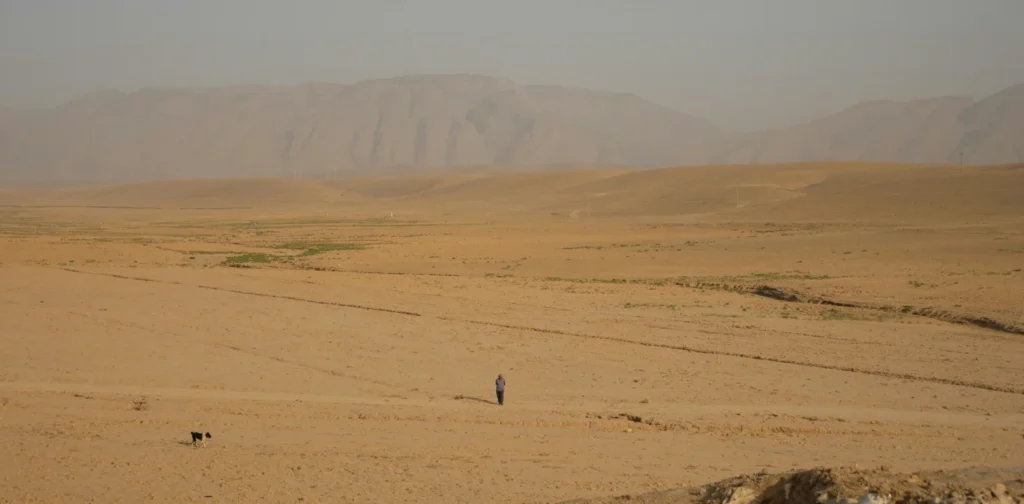Looking into Uzbekistan’s Rural Development

Sustainable development moves with the spirit of leaving no one behind, yet around the world, people in rural areas often struggle to access water, electricity, and other basic needs. Their challenges may also depend on various local contexts, and so do the solutions. In Uzbekistan, what efforts are underway to support rural development?
Uzbekistan’s Rural Challenges
Uzbekistan is a landlocked country in Central Asia with an estimated population of 37 million. Nearly half of them live in rural areas. World Bank data shows that the country has halved its poverty rate from 36% in 2015 to 17% in 2022. Despite this significant progress, people living in Uzbekistan’s rural areas still face many struggles.
For instance, the growth in wheat production in Uzbekistan comes at the cost of land degradation, water pollution, and vulnerability in the agriculture sector. Rural women also lack the ownership to manage land, which further hinders agricultural productivity. Additionally, young people struggle with a lack of necessary skills and opportunities to secure employment.
Climate change also compounds these challenges. Climate-induced droughts and disasters, combined with unsustainable water management, lead to water scarcity. Without interventions, the country will suffer from water shortages of 15 billion cubic meters by 2050.
Rural Development with Local Participation
In 2022, Uzbekistan’s Ministry of Economy and Finance and the United Nations Development Programme launched a joint project to address accessibility and infrastructure issues in Uzbekistan’s rural areas. Under the Sustainable Rural Development project, they aim to improve access to electricity, water, healthcare, and education, as well as provide road and other infrastructure repair.
During the first phase, the project formed 40 clusters of Community Development Plans, with the active participation of local communities. These plans branched into roadmaps for implementing 895 subprojects to build infrastructures across four regions.
One example is the installation of propane air conditioners in rural medical points in the Aral Sea region, which has long suffered from dust storms caused by the drying up of the lake. At the same time, the air conditioner system reduces carbon emissions, which is important in the context of the ongoing climate crisis. A training session on air conditioner maintenance was also conducted to enable participation and agency from local communities.
The project also facilitates training sessions for digital transformation. “Thanks to the project, 54,190 local residents gained digital access to government services. Furthermore, eight rural schools were provided with new IT resources, including 128 computers and interactive smart boards, unlocking new opportunities for the younger generation,” said Akiko Fujii, UNDP Resident Representative in Uzbekistan.
Leaving No One Behind
At the end of 2024, the project launched its second phase, covering 157 communities across 21 districts in three regions. Training sessions were conducted involving women and people with disabilities to formulate suitable actions for each community’s unique context.
Ultimately, the sustainable development of rural areas and their people must center on the lived experience and insight of the local communities to ensure effective and meaningful progress that leaves no one behind.

Co-create positive impact for people and the planet.
Amidst today’s increasingly complex global challenges, equipping yourself, team, and communities with interdisciplinary and cross-sectoral insights on sustainability-related issues and sustainable development is no longer optional — it is a strategic necessity to stay ahead and stay relevant.

Kresentia Madina
Madina is the Assistant Manager of Stakeholder Engagement at Green Network Asia. She holds a bachelor’s degree in English Studies from Universitas Indonesia. As part of the GNA In-House Team, she supports the organization's multi-stakeholder engagement across international organizations, governments, businesses, civil society, and grassroots communities through digital publications, events, capacity building, and research.


 Indian Gig Workers Push Back Against 10-Minute Delivery Service Strain
Indian Gig Workers Push Back Against 10-Minute Delivery Service Strain  Call for Governance: Grassroots Initiatives Look to Scale Efforts to Conserve Depleting Groundwater
Call for Governance: Grassroots Initiatives Look to Scale Efforts to Conserve Depleting Groundwater  Integrating Environment, Climate Change, and Sustainability Issues into Education Systems
Integrating Environment, Climate Change, and Sustainability Issues into Education Systems  Finally Enforced: Understanding the UN High Seas Treaty
Finally Enforced: Understanding the UN High Seas Treaty  Risks and Opportunities of Submarine Communication Cables for Sustainable Development
Risks and Opportunities of Submarine Communication Cables for Sustainable Development  Rising Attacks and Violence Against Land and Environmental Defenders
Rising Attacks and Violence Against Land and Environmental Defenders